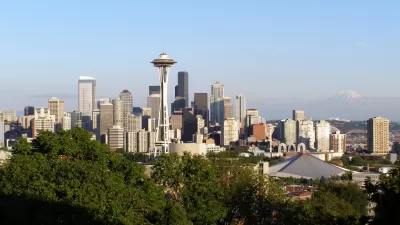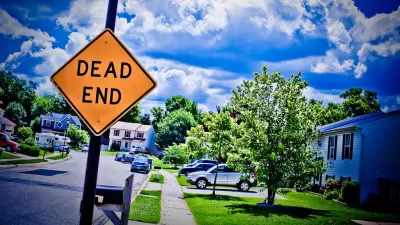The swift rejection of a proposal to upzone residential neighborhoods in Seattle inspired The Urbanist to evaluate the lessons of the episode. One takeaway: don't demonize single-family homeowners.

Robert Cruickshank provides a post-mortem on the attention-grabbing upzone proposal that was more dead than alive on arrival in Seattle:
"For many urbanists, it's been a journey of elation to despair. Just two weeks after the Housing Affordability and Livability Agenda (HALA) proposals were announced, several of its core recommendations have already been abandoned. Facing a growing backlash, Mayor Ed Murray announced he will no longer seek zoning changes in single-family neighborhoods."
Cruickshank blames the failure of the recommendations on a lack of public support for a process that lacked public participation. "The HALA committee finally made the plans public before there had been any meaningful effort to organize grassroots activism to support them—or to explain to Seattle residents why the zoning changes mattered," writes Cruickshank. Offering some advice for how to handle an opportunity like this the next time, and in other cities, Cruickshank says "it's time to treat zoning changes as what they truly are: a political debate." The article follows with more detail about how that lesson could have been applied in the example of the HALA recommendations.
Chuck Wolfe also recently wrote of some of the takeaways he'd identified from the episode, including a hopeful idea that the HALA report could result in a more inclusive city.
FULL STORY: WHY THE HALA SINGLE-FAMILY UPZONES DIED

Alabama: Trump Terminates Settlements for Black Communities Harmed By Raw Sewage
Trump deemed the landmark civil rights agreement “illegal DEI and environmental justice policy.”

Planetizen Federal Action Tracker
A weekly monitor of how Trump’s orders and actions are impacting planners and planning in America.

The 120 Year Old Tiny Home Villages That Sheltered San Francisco’s Earthquake Refugees
More than a century ago, San Francisco mobilized to house thousands of residents displaced by the 1906 earthquake. Could their strategy offer a model for the present?

In Both Crashes and Crime, Public Transportation is Far Safer than Driving
Contrary to popular assumptions, public transportation has far lower crash and crime rates than automobile travel. For safer communities, improve and encourage transit travel.

Report: Zoning Reforms Should Complement Nashville’s Ambitious Transit Plan
Without reform, restrictive zoning codes will limit the impact of the city’s planned transit expansion and could exclude some of the residents who depend on transit the most.

Judge Orders Release of Frozen IRA, IIJA Funding
The decision is a victory for environmental groups who charged that freezing funds for critical infrastructure and disaster response programs caused “real and irreparable harm” to communities.
Urban Design for Planners 1: Software Tools
This six-course series explores essential urban design concepts using open source software and equips planners with the tools they need to participate fully in the urban design process.
Planning for Universal Design
Learn the tools for implementing Universal Design in planning regulations.
Clanton & Associates, Inc.
Jessamine County Fiscal Court
Institute for Housing and Urban Development Studies (IHS)
City of Grandview
Harvard GSD Executive Education
Toledo-Lucas County Plan Commissions
Salt Lake City
NYU Wagner Graduate School of Public Service



























